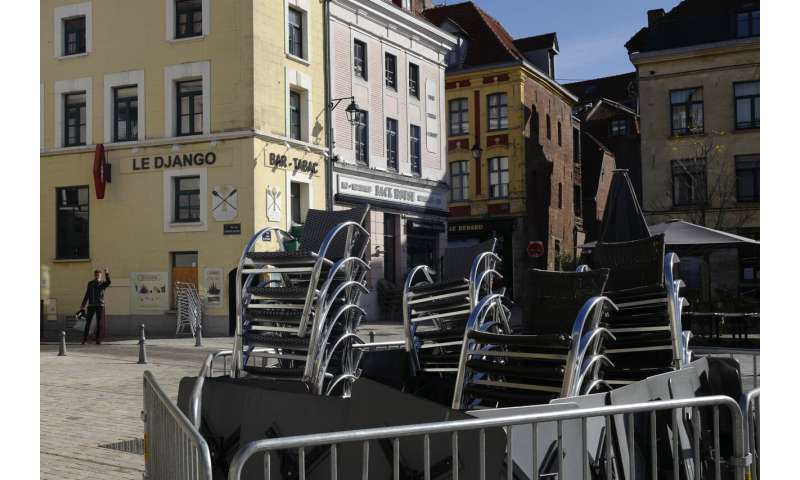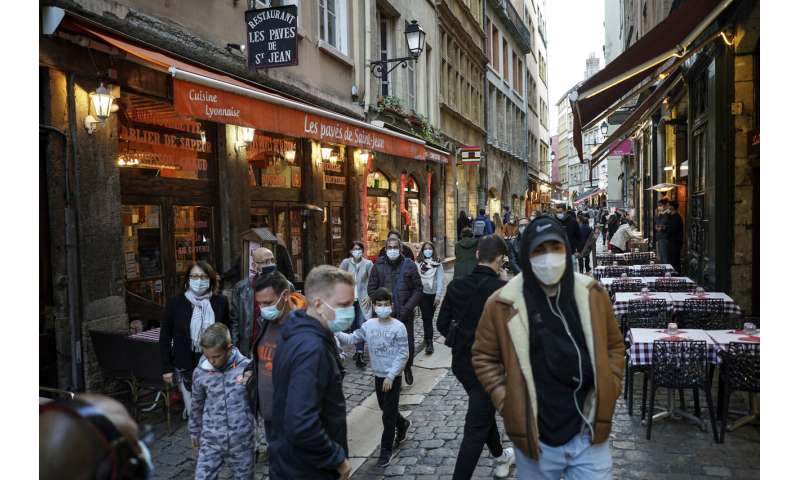
Two more French cities on Sunday joined Paris and Marseille and four others in maximum alert status to fight back the coronavirus, surgical strikes with strict new measures to stop the spread of infections.
The prefecture of Montpellier, in the south, announced a maximum alert status for the city and surrounding towns starting Tuesday. Measures include the closing of cafes and bars. The southwest city of Toulouse was doing likewise after a day of meetings between mayors of surrounding towns and the prefect, the local state authority, the Toulouse newspaper La Depeche reported.
Soaring infections and increased hospitalizations put four other cities on the maximum alert list on Saturday: Lyon, Grenoble and Saint-Etienne in the southeast and Lille in the north.
National health authorities reported on Saturday nearly 26,900 new daily infections in 24 hours. The count dropped to 16,100 on Sunday, but the rate of positive tests climbed to 11.5%. There were nearly 5,100 new hospitalizations over the past week, with 910 people in ICUs. As of Sunday, there were 32,730 COVID-19 deaths, but the actual number is likely higher due to deaths at home and incomplete reporting from hospitals or rest homes.
While France girded itself for a climb in critical numbers, a consultation by the National Order of Nurses published Sunday suggested that a significant number of respondents feel tired and fed up, with 37% saying the coronavirus pandemic is making them want to change jobs.

Nearly 59,400 nurses responded to the Oct. 2-7 internal survey on the impact of the health crisis on their working conditions, out of 350,000 in the Order of Nurses. A spokesman for the order, Adrien de Casabianca, described the survey as a “consultation” without the classic methodology of a poll.
The numbers suggested that French medical facilities may not be keeping pace with the growing need, despite lessons from the height of the virus crisis last spring.
The National Order of Nurses notes that 34,000 nurses’ jobs in France are currently vacant.
Nurses and other health professionals in France and elsewhere have sporadically demonstrated for higher salaries, better working conditions and more personnel. They were given small salary hikes in France starting this fall.
“Today, nurses must deal with a growth in COVID-19 cases and feel unarmed to do so,” the president of the National Order of Nurses, Patrick Chamboredon, said in a statement accompanying the survey.

With nurses “indispensable” to the functioning of the health system, “we cannot accept that,” he said.
The head of the infectious diseases unit at Paris’ Bichat Hospital, a major COVID-19 treatment center, Yazdan Yazdanpaneh, questioned whether so many nurses really want to change jobs because “despite it all, these are people who adore their work.”
“They are tired … it’s stress, it’s tension, it’s lots of work,” he said on BFMTV. “Truly, we must take care of them.”

